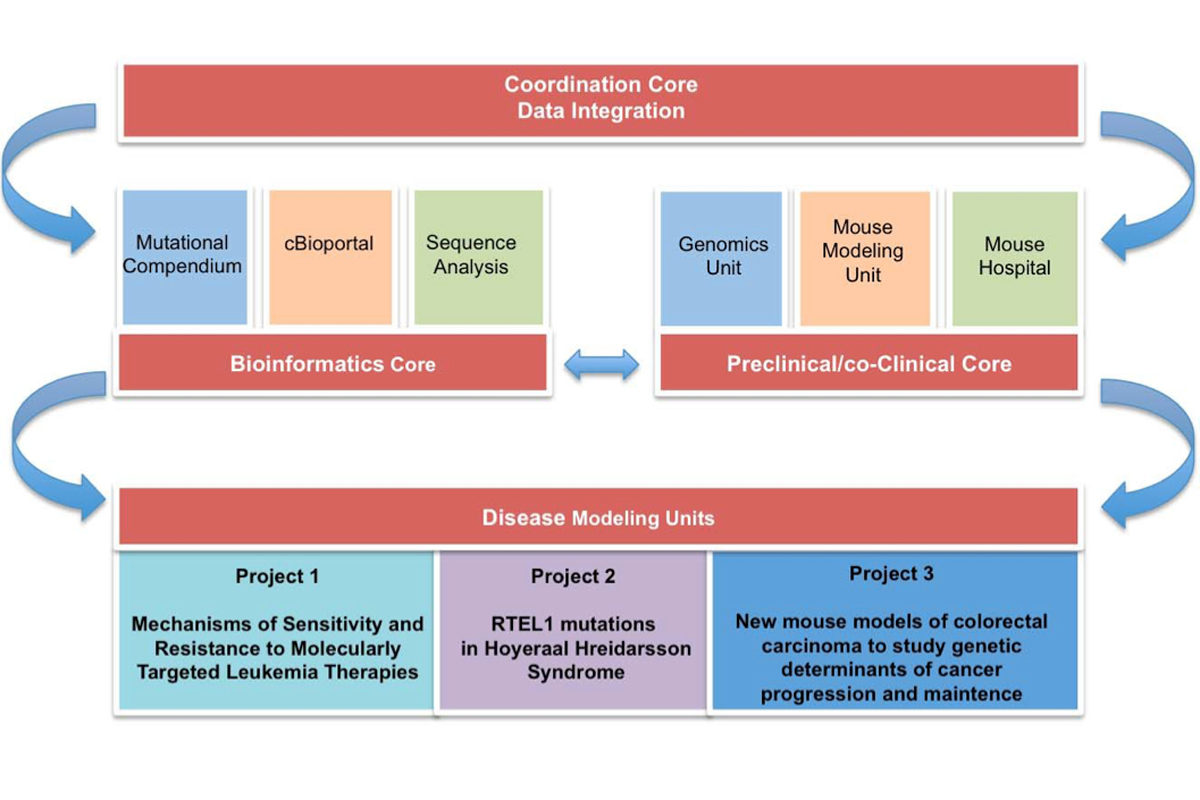Funded by a grant from the National Institutes of Health (NIH), with additional support from the Geoffrey Beene Cancer Research Center, the Memorial Sloan Kettering Pilot Center for Precision Disease Modeling aims to translate genome-based knowledge into the development of new therapies for human disease.
Literally thousands of human diseases, disorders, and syndromes have been described and, through advances in genome technologies, are being characterized in much greater molecular detail. A fundamental challenge for medical research is to develop and exploit the most relevant and predictive model systems to understand the physiological impact of the genetic changes associated with these conditions, with the ultimate goal of improving patient care and treatment. Already in the past two decades, the range of approaches used to study gene function in normal and diseased states has increased dramatically. However, as our depth of knowledge has grown, so too have our expectations of experimental models to accurately replicate human conditions and to assist researchers in quickly answering biological questions.
The Pilot Center for Precision Disease Modeling unites and expands existing infrastructure and research to create an innovative center with the ability to effectively utilize genomic information, in vivo models, and preclinical and co-clinical studies to enhance the understanding and treatment of disease.
Goals & Workflow
The center includes two cores: a Preclinical/Co-Clinical Core consisting of Genomic, Mouse Modeling, and Mouse Hospital Units and a Bioinformatics Core. These highly integrated core resources are used to support three Disease Modeling Units that serve as pilot projects to illustrate and help hone the capabilities of the center. Each of the Disease Modeling projects addresses significant and innovative basic, translational, and clinical questions relevant to the understanding and treatment of diseases, ranging from the mechanistic basis of early bone marrow failure in premature aging syndromes to the molecular origins and dependencies of colorectal cancers and the development of precision treatment strategies for patients with acute leukemia.
The major goals of the Pilot Center for Precision Disease Modeling are to coordinate and enhance ongoing genomics, computational, and animal modeling efforts at MSK; to provide technical infrastructure and support for the center’s Disease Modeling Units; and to make available center capabilities to MSK investigators and other New York City–based institutions. Additionally, the center works with the NIH and other pilot centers to leverage resources to achieve the greatest national impact. The center provides a blueprint for realizing the potential of human genomics to guide the development of accurate models that can be used to develop novel therapies to ameliorate disease.
The organizational chart for the proposed Pilot Center for Precision Disease Modeling displays the workflow and communication network that supports collaborative research projects aimed at overcoming major bottlenecks between the diagnosis of human disease, understanding its mechanism, and predicting the therapeutic responsiveness of new treatments using precision animal models.
